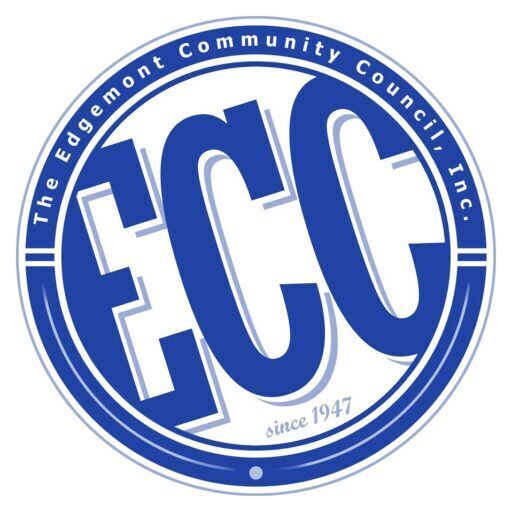The Town Board tonight unanimously approved a comprehensive plan for the unincorporated areas of the Town, bringing the curtain down on a controversial eight-year effort that began in early 2008.
The Edgemont Community Council opposed adoption of the plan on the ground that it failed to include any plan for the future of Edgemont’s Central Avenue corridor, which is today responsible for 18% of Edgemont’s total tax base.
The ECC had lobbied strongly for the Town to come up with a comprehensive plan in order to end the Town’s practice of ad hoc zoning. For Central Avenue, the ECC wanted professional consultants to recommend a strategy that would maximize revenue, while at the same time minimizing impacts on the school district, infrastructure, traffic, noise, open space, air and light pollution and other quality of life concerns.
“Without a comprehensive plan for Edgemont’s Central Avenue corridor,” Mr. Bernstein said, “There’s a risk that Edgemont might not continue to be economically sustainable.”
“We’ve been saying for the past ten years that these issues require professional expertise, and while we paid for such expertise, the Town Board decided five years ago to put the Town’s paid consultant, Vince Ferrandino & Asociates, on “hiatus” and have the Town’s planning commissioner do the work instead,” Mr. Bernstein said. “As a result, the process was needlessly politicized, the work we paid for as taxpayers was never completed, and Edgemont got the short end of the stick.”
Mr. Bernstein warned that the lack of a comprehensive plan for Central Avenue would put Edgemont at even further risk of chaos when it comes to land use issues. “We’re already dealing with three lawsuits as a result of the Town’s mismanagement of land use matters,” Mr. Bernstein said, referring to the Shelbourne, Dromore and massage parlor litigation.
“Unless Edgemont decides to take zoning and planning matters into its own hands, we may well see even more litigation whenever the Town’s interests differ from Edgemont’s,” he said.
Mr. Bernstein noted that the comprehensive plan needlessly irritated Edgemont residents opposed to Shelbourne’s assisted living project on Underhill Road by characterizing the Town’s assisted living statute as allowing such facilities in all residential neighborhoods provided they are on lots of at least four acres – thus omitting the crucial requirement in the town code that only lots within 200 feet of a state or county right-of-way are eligible for such use.
Planning commissioner Garrett Duquesne took credit for the omission, but said it didn’t matter because even though he purposely omitted mentioning the 200-foot requirement, which creates the false and misleading impression to anyone reading the plan that town policy now allows assisted living facilities in all residential neighborhoods throughout unincorporated without regard to any 200-foot perimeter, Greenburgh would still have to amend the zoning code to make that change, which it has not yet done.
In approving the plan tonight, not one town board member thought the misleading language about the assisted living requirement should be corrected — even after Mr. Bernstein pointed out that Edgemont residents opposed to the Town’s actions on Shelbourne would find the misleading characterization offensive.
More friction with Edgemont arose when Mr. Bernstein asked town officials if they would make available copies of the court papers filed by the Town in opposition to Shelbourne’s latest lawsuit. Even though town officials could make such documents available electronically with the push of a keystroke, he was told he would have to first file a Freedom of Information Law request to get them.
Town Attorney Tim Lewis last night touted the documents the Town filed in opposition to Shelbourne’s lawsuit, assuring resident there would now be no need for residents to intervene as they had in the Valhalla litigation on the ground that the Town was not capable of adequately defending the Town’s interests.
Mr. Bernstein, who had successfully intervened on behalf of town residents in the Valhalla lawsuit, and then went on to win the case, asked why publicly filed documents, which are a matter of public record, could not be produced immediately for the asking.
Because these documents are customarily available directly from the court, a FOIL request to get copies of publicly filed legal papers prepared at taxpayer expense isn’t normally required. Indeed, under the Town Code, “a written request shall not be required for records that have been customarily available without written request.”
But Greenburgh officials last night refused to produce the documents without a formal FOIL request being filed — and such a request was filed just as the meeting ended.
On a positive note, in response to criticism by Mr. Bernstein last month that the Town Board was putting the public at risk in adopting the comprehensive plan without first properly complying with state environmental laws, the Town Board hired the Ferrandino firm to review the work that Mr. Duquesne had done.
Mr. Ferrandino said many changes were then made, the most of important of which were to identify all recommended changes in zoning policy and state expressly that any such zoning changes, if proposed, would require a full blown SEQRA analysis.
“The Town dodged a bullet by engaging Mr. Ferrandino again,” Mr. Bersnstein said. “Wtihout the work that he did, developers down the road might have argued when they needed zone changes or variances for their projects that the SEQRA work was already done when the Town Board passed the comprehensive plan. Fortunately, that’s not now the case.”
